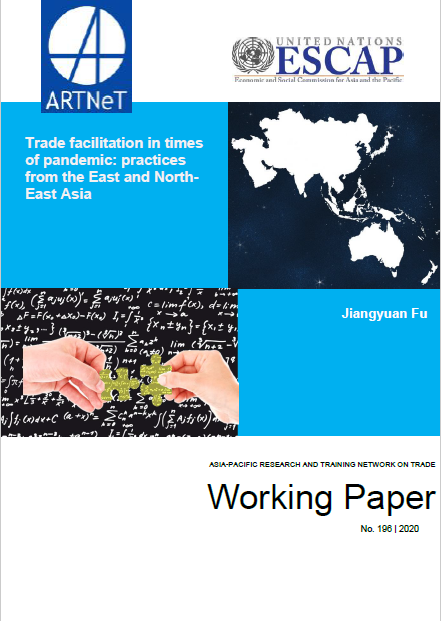Trade facilitation in times of pandemic: practices from the East and North- East Asia

The COVID-19 pandemic is considered the most serious health crisis and the greatest challenge to humankind since the Second World War. Although countries in East and North-East Asia (ENEA) were the first to be hit by COVID-19, they have so far been successful in controlling the outbreak with relatively low fatalities, partially thanks to various containment measures.
The ongoing impact of the pandemic and its local resurgences have caused major disruption to the global economy. The ENEA sub-region is no exception. In this context, the spotlight has been placed on trade facilitation measures to maintain the flow of trade in times of crisis. All ENEA countries have introduced various measures to facilitate trade, although details of how these measures are applied on the ground vary based on the different cultural, societal and economic contexts of each country. This paper provides descriptive yet organized information on the trade facilitation measures taken by countries in the sub-region in response to the pandemic with a focus on China and the Republic of Korea. Typically, these measures include: institutional cooperation to control the virus and facilitate the imports of critical supplies; the simplification of customs procedures and expedited clearance; measures to facilitate transport and logistics; facilitating trade through digital information technologies; measures to support businesses- especially SMEs and the agricultural sector; and cross-border trade finance support.
Based on accumulated lessons and practices in ENEA countries during COVID-19 pandemic, the paper asses the measures that can be adopted by other countries in their battle against the pandemic. It also discusses measures that can be maintained in the post-pandemic “new normal”, as well as preparedness that should be institutionalized for future emergencies.
As countries in this sub-region begin to reopen and resume work, it is essential that we prevent a second wave of the pandemic, make supply chains more resilient and boost confidence in the global economy through strengthened coordination, as well as improved and holistic trade facilitation measures. Countries that have not yet implemented these trade facilitation measures should accelerate their process.


